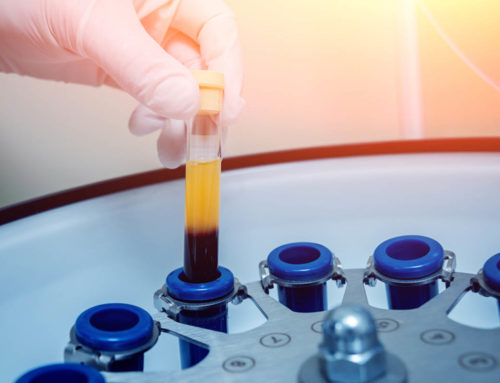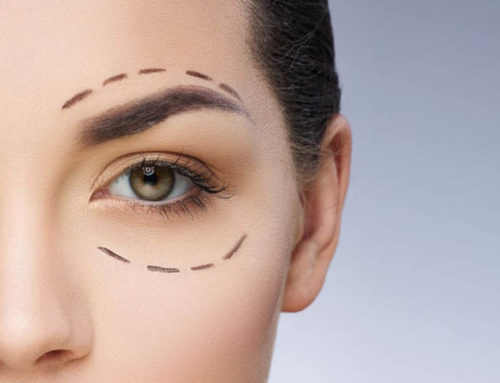Gynecomastia is a prevalent condition characterized by the enlargement of male breast tissue, which can occur at any age but is most commonly observed during infancy, puberty, and later in adulthood. The condition has multiple causes, with hormonal imbalance between testosterone and estrogen being the most common factor.

Understanding the Impact of Gynecomastia on Your Body
Gynecomastia, a condition characterized by the growth of button-sized tissue underneath the nipple, can have visible effects on the body. This growth may manifest as a breast lump that can be seen or felt when pressure is applied to the area. The lump is often mobile within the breast tissue and may be sensitive to touch. It’s important to note that gynecomastia can occur in one or both breasts, resulting in breast enlargement.
How common is Gynecomastia
Gynecomastia is the most prevalent breast disorder in males, with a global incidence ranging from 50 to 65% among boys and men.
Who Can be Affected by Gynecomastia?
Gynecomastia can affect individuals at different stages of life, including:
- Birth: More than half of male newborns experience breast enlargement or breast buds, which is caused by the mother’s estrogen levels. This condition typically resolves within a few weeks.
- Puberty: Over 50% of teenage boys may experience some level of breast enlargement due to hormonal fluctuations, including drops in testosterone and surges in estrogen. This typically resolves as hormone levels stabilize, which can take about six months to two years.
- Adulthood: Enlarged breasts are more commonly observed in men over 50 years of age. As men age, their testosterone production decreases, and they may accumulate more body fat, which can stimulate estrogen production and lead to breast tissue growth.
The Causes of Gynecomastia
Gynecomastia is typically caused by an imbalance between estrogen and androgen hormones in the body. Normally, men produce small amounts of estrogen, which regulates breast growth. However, if there is an excess of estrogen or low levels of testosterone (hypogonadism), it can lead to breast enlargement in males.
In addition, obesity can also cause enlarged breasts due to excess fatty tissue, a condition known as pseudogynecomastia.
Medications and Drugs that Can Cause Gynecomastia
Gynecomastia, or breast enlargement in males, can be triggered by certain medications used to treat various conditions, including:
- Anxiety and depression
- Bacterial and fungal infections
- Enlarged prostate
- Heartburn and peptic (stomach) ulcers
- Heart failure and high blood pressure
- Male infertility (by taking human chorionic gonadotropin, or HCG)
- Substance abuse (by taking methadone)
In addition, certain drugs and substances, such as amphetamines, marijuana, opioids, anabolic steroids used for muscle building, and lavender oils and tea tree oils (commonly found in herbal supplements and skincare products), have also been associated with breast swelling in some cases. It’s important to be aware of these potential side effects and consult with a healthcare professional if you have concerns about the medications or drugs you are taking.
What to Expect
For diagnosing, your healthcare provider will typically assess your symptoms, perform a physical exam, and review your medical and family history. In some cases, a blood test may also be recommended to check hormone levels.
Since breast lumps can also be indicative of breast cancer, your provider may order additional imaging tests, such as a breast ultrasound to obtain detailed images of the breast growths, or a mammogram to examine any unusual growths or changes in breast tissue. These diagnostic measures help in accurately identifying gynecomastia and ruling out other potential causes, including breast cancer.

How to prevent Gynecomastia
Preventing gynecomastia may not be possible in cases where hormone changes are the underlying cause. However, there are certain steps that can be taken to potentially reduce the risk of breast enlargement:
- Medication Management: If you are taking medications that are known to increase the risk of gynecomastia, discuss with your healthcare provider if there are alternative medications that can be prescribed with lower risk of causing breast enlargement.
- Substance Use Disorder Treatment: If you are struggling with substance abuse, seeking treatment and recovery support can help reduce the risk of developing gynecomastia associated with drug or alcohol use.
- Regular Monitoring: Regular check-ups with your healthcare provider and monitoring of hormone levels may help identify any changes in estrogen or testosterone levels that could contribute to gynecomastia.
It’s important to discuss any concerns or questions about gynecomastia prevention with your healthcare provider, who can provide personalized guidance and recommendations based on your individual health status and risk factors.
Questions to Ask Your Healthcare Provider at IstanBest Clinic about Gynecomastia:
- Why did I develop gynecomastia? What could be the underlying cause of my condition?
- Are the medications I am currently taking contributing to my breast enlargement? Should I consider switching to alternative medications?
- What treatment options are available for gynecomastia? What are the benefits and risks of each option?
- How long can I expect my breasts to remain enlarged? Is this a temporary or permanent condition?
- Are there any steps I can take to prevent recurrence of gynecomastia in the future?
- Should I undergo screening for breast cancer, considering my history of gynecomastia?
- What signs or symptoms should I watch for that may indicate complications related to gynecomastia?
- Are there any lifestyle changes or preventive measures I can take to manage gynecomastia effectively?
It’s important to have an open and honest discussion with your healthcare provider at IstanBest Clinic about your concerns and questions regarding gynecomastia. They can provide you with personalized information and recommendations based on your individual health status and needs.
A word from IstanBest Clinic
If you’re feeling uncomfortable about the size of your breasts due to gynecomastia, don’t hesitate to talk to your healthcare provider. It’s important to address the underlying cause of the condition, whether it’s related to medication use or an underlying disease. Medication changes or disease treatments may be effective in managing gynecomastia.
In many cases, swollen breast tissue may shrink over time. If you’re feeling anxious about your appearance, seeking support from a mental health professional may also be beneficial. Remember, you don’t have to feel embarrassed or ashamed about your condition, and seeking medical help can lead to effective solutions.




